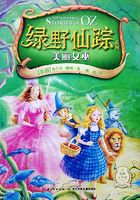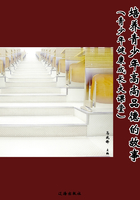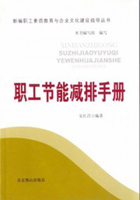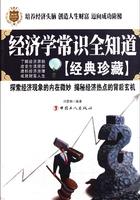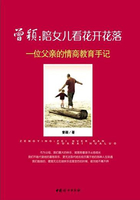This is a story about something that happened long ago when your grandfather was a child. It is a very important story because it shows how all the comings and goings between our own world and the land of Narnia first began.
In those days Mr Sherlock Holmes was still living in Baker Street and the Bastables were looking for treasure in the Lewisham Road. In those days, if you were a boy you had to wear a stiff Eton collar every day, and schools were usually nastier than now. But meals were nicer; and as for sweets, I won't tell you how cheap and good they were, because it would only make your mouth water in vain. And in those days there lived in London a girl called Polly Plummer.
She lived in one of a long row of houses which were all joined together. One morning she was out in the back garden when a boy scrambled up from the garden next door and put his face over the wall. Polly was very surprised because up till now there had never been any children in that house, but only Mr Ketterley and Miss Ketterley, a brother and sister, old bachelor and old maid, living together. So she looked up, full of curiosity. The face of the strange boy was very grubby. It could hardly have been grubbier if he had first rubbed his hands in the earth, and then had a good cry, and then dried his face with his hands. As a matter of fact, this was very nearly what he had been doing.
"Hullo," said Polly.
"Hullo," said the boy. "What's your name?"
"Polly," said Polly. "What's yours?"
"Digory," said the boy.
"I say, what a funny name!" said Polly.
"It isn't half so funny as Polly," said Digory.
"Yes it is," said Polly.
"No, it isn't," said Digory.
"At any rate I do wash my face," said Polly. "Which is what you need to do; especially after-" and then she stopped. She had been going to say "After you've been blubbing," but she thought that wouldn't be polite.
"All right, I have then," said Digory in a much louder voice, like a boy who was so miserable that he didn't care who knew he had been crying. "And so would you," he went on, "if you'd lived all your life in the country and had a pony, and a river at the bottom of the garden, and then been brought to live in a beastly Hole like this."
"London isn't a Hole," said Polly indignantly. But the boy was too wound up to take any notice of her, and he went on-
"And if your father was away in India-and you had to come and live with an Aunt and an Uncle who's mad (who would like that?)-and if the reason was that they were looking after your Mother-and if your Mother was ill and was going to-going to-die." Then his face went the wrong sort of shape as it does if you're trying to keep back your tears.
"I didn't know. I'm sorry," said Polly humbly. And then, because she hardly knew what to say, and also to turn Digory's mind to cheerful subjects, she asked:
"Is Mr Ketterley really mad?"
"Well, either he's mad," said Digory, "or there's some other mystery. He has a study on the top floor and Aunt Letty says I must never go up there. Well, that looks fishy to begin with. And then there's another thing. Whenever he tries to say anything to me at meal times-he never even tries to talk to her-she always shuts him up. She says, ‘Don't worry the boy, Andrew' or ‘I'm sure Digory doesn't want to hear about that’ or else ‘Now, Digory, wouldn't you like to go out and play in the garden?’"
"What sort of things does he try to say?"
"I don't know. He never gets far enough. But there's more than that. One night-it was last night in fact-as I was going past the foot of the attic stairs on my way to bed (and I don't much care for going past them either) I'm sure I heard a yell."
"Perhaps he keeps a mad wife shut up there."
"Yes, I've thought of that."
"Or perhaps he's a coiner."
"Or he might have been a pirate, like the man at the beginning of Treasure Island, and be always hiding from his old shipmates."
"How exciting!" said Polly, "I never knew your house was so interesting."
"You may think it interesting," said Digory. "But you wouldn't like it if you had to sleep there. How would you like to lie awake listening for Uncle Andrew's step to come creeping along the passage to your room? And he has such awful eyes."
That was how Polly and Digory got to know one another: and as it was just the beginning of the summer holidays and neither of them was going to the sea that year, they met nearly every day.
Their adventures began chiefly because it was one of the wettest and coldest summers there had been for years. That drove them to do indoor things: you might say, indoor exploration. It is wonderful how much exploring you can do with a stump of candle in a big house, or in a row of houses. Polly had discovered long ago that if you opened a certain little door in the box-room attic of her house you would find the cistern and a dark place behind it which you could get into by a little careful climbing. The dark place was like a long tunnel with brick wall on one side and sloping roof on the other. In the roof there were little chunks of light between the slates. There was no floor in this tunnel: you had to step from rafter to rafter, and between them there was only plaster. If you stepped on this you would find yourself falling through the ceiling of the room below. Polly had used the bit of the tunnel just beside the cistern as a smugglers' cave. She had brought up bits of old packing cases and the seats of broken kitchen chairs, and things of that sort, and spread them across from rafter to rafter so as to make a bit of floor. Here she kept a cash-box containing various treasures, and a story she was writing and usually a few apples. She had often drunk a quiet bottle of ginger-beer in there: the old bottles made it look more like a smugglers' cave.
Digory quite liked the cave (she wouldn't let him see the story) but he was more interested in exploring.
"Look here," he said. "How long does this tunnel go on for? I mean, does it stop where your house ends?"
"No," said Polly. "The walls don't go out to the roof. It goes on. I don't know how far."
"Then we could get the length of the whole row of houses."
"So we could," said Polly. "And oh, I say!"
"What?"
"We could get into the other houses."
"Yes, and get taken up for burglars! No thanks."
"Don't be so jolly clever. I was thinking of the house beyond yours."
"What about it?"
"Why, it's the empty one. Daddy says it's always been empty since we came here."
"I suppose we ought to have a look at it then," said Digory. He was a good deal more excited than you'd have thought from the way he spoke. For of course he was thinking, just as you would have been, of all the reasons why the house might have been empty so long. So was Polly. Neither of them said the word "haunted" . And both felt that once the thing had been suggested, it would be feeble not to do it.
"Shall we go and try it now?" said Digory.
"Alright," said Polly.
"Don't if you'd rather not," said Digory.
"I'm game if you are," said she.
"How are we to know we're in the next house but one?"
They decided they would have to go out into the box-room and walk across it taking steps as long as the steps from one rafter to the next. That would give them an idea of how many rafters went to a room. Then they would allow about four more for the passage between the two attics in Polly's house, and then the same number for the maid's bedroom as for the box-room. That would give them the length of the house. When they had done that distance twice they would be at the end of Digory's house; any door they came to after that would let them into an attic of the empty house.
"But I don't expect it's really empty at all," said Digory.
"What do you expect?"
"I expect someone lives there in secret, only coming in and out at night, with a dark lantern. We shall probably discover a gang of desperate criminals and get a reward. It's all rot to say a house would be empty all those years unless there was some mystery."
"Daddy thought it must be the drains," said Polly.
"Pooh! Grown-ups are always thinking of uninteresting explanations," said Digory. Now that they were talking by daylight in the attic instead of by candlelight in the Smugglers' Cave it seemed much less likely that the empty house would be haunted.
When they had measured the attic they had to get a pencil and do a sum. They both got different answers to it at first, and even when they agreed I am not sure they got it right. They were in a hurry to start on the exploration.
"We mustn't make a sound," said Polly as they climbed in again behind the cistern. Because it was such an important occasion they took a candle each (Polly had a good store of them in her cave).
It was very dark and dusty and draughty and they stepped from rafter to rafter without a word except when they whispered to one another, "We're opposite your attic now", or "This must be halfway through our house". And neither of them stumbled and the candles didn't go out, and at last they came where they could see a little door in the brick wall on their right. There was no bolt or handle on this side of it, of course, for the door had been made for getting in, not for getting out; but there was a catch (as there often is on the inside of a cupboard door) which they felt sure they would be able to turn.
"Shall I?" said Digory.
"I'm game if you are," said Polly, just as she had said before. Both felt that it was becoming very serious, but neither would draw back. Digory pushed round the catch with some difficulty. The door swung open and the sudden daylight made them blink. Then, with a great shock, they saw that they were looking, not into a deserted attic, but into a furnished room. But it seemed empty enough. It was dead silent. Polly's curiosity got the better of her. She blew out her candle and stepped out into the strange room, making no more noise than a mouse.
It was shaped, of course, like an attic, but furnished as a sitting-room. Every bit of the walls was lined with shelves and every bit of the shelves was full of books. A fire was burning in the grate (you remember that it was a very cold wet summer that year) and in front of the fireplace with its back towards them was a high-backed armchair. Between the chair and Polly, and filling most of the middle of the room, was a big table piled with all sorts of things-printed books, and books of the sort you write in, and ink bottles and pens and sealing-wax and a microscope. But what she noticed first was a bright red wooden tray with a number of rings on it. They were in pairs-a yellow one and a green one together, then a little space, and then another yellow one and another green one. They were no bigger than ordinary rings, and no one could help noticing them because they were so bright. They were the most beautiful shiny little things you can imagine. If Polly had been a very little younger she would have wanted to put one in her mouth.
The room was so quiet that you noticed the ticking of the clock at once. And yet, as she now found, it was not absolutely quiet either. There was a faint-a very, very faint-humming sound. If Hoovers had been invented in those days Polly would have thought it was the sound of a Hoover being worked a long way off-several rooms away and several floors below. But it was a nicer sound than that, a more musical tone: only so faint that you could hardly hear it.
"It's all right; there's no one here," said Polly over her shoulder to Digory. She was speaking above a whisper now. And Digory came out, blinking and looking extremely dirty-as indeed Polly was too.
"This is no good," he said. "It's not an empty house at all. We'd better bunk before anyone comes."
"What do you think those are?" said Polly, pointing at the coloured rings.
"Oh come on," said Digory. "The sooner-"
He never finished what he was going to say for at that moment something happened. The high-backed chair in front of the fire moved suddenly and there rose up out of it-like a pantomime demon coming up out of a trapdoor-the alarming form of Uncle Andrew. They were not in the empty house at all; they were in Digory's house and in the forbidden study! Both children said "O-o-oh" and realized their terrible mistake. They felt they ought to have known all along that they hadn't gone nearly far enough.
Uncle Andrew was tall and very thin. He had a long clean-shaven face with a sharply pointed nose and extremely bright eyes and a great tousled mop of grey hair.
Digory was quite speechless, for Uncle Andrew looked a thousand times more alarming than he had ever looked before. Polly was not so frightened yet; but she soon was. For the very first thing Uncle Andrew did was to walk across to the door of the room, shut it, and turn the key in the lock. Then he turned round, fixed the children with his bright eyes, and smiled, showing all his teeth.
"There!" he said. "Now my fool of a sister can't get at you!"
It was dreadfully unlike anything a grown-up would be expected to do. Polly's heart came into her mouth, and she and Digory started backing towards the little door they had come in by. Uncle Andrew was too quick for them. He got behind them and shut that door too and stood in front of it. Then he rubbed his hands and made his knuckles crack. He had very long, beautifully white, fingers.
"I am delighted to see you," he said. "Two children are just what I wanted."
"Please, Mr Ketterley," said Polly. "It's nearly my dinner time and I've got to go home. Will you let us out, please?"
"Not just yet," said Uncle Andrew. "This is too good an opportunity to miss. I wanted two children. You see, I'm in the middle of a great experiment. I've tried it on a guinea-pig and it seemed to work. But then a guinea-pig can't tell you anything. And you can't explain to it how to come back."
"Look here, Uncle Andrew," said Digory, "it really is dinner time and they'll be looking for us in a moment. You must let us out."
"Must?" said Uncle Andrew.
Digory and Polly glanced at one another. They dared not say anything, but the glances meant "Isn't this dreadful?" and "We must humour him."
"If you let us go for our dinner now," said Polly, "we could come back after dinner."
"Ah, but how do I know that you would?" said Uncle Andrew with a cunning smile. Then he seemed to change his mind.
"Well, well," he said, "if you really must go, I suppose you must. I can't expect two youngsters like you to find it much fun talking to an old buffer like me." He sighed and went on. "You've no idea how lonely I sometimes am. But no matter. Go to your dinner. But I must give you a present before you go. It's not every day that I see a little girl in my dingy old study; especially, if I may say so, such a very attractive young lady as yourself."
Polly began to think he might not really be mad after all.
"Wouldn't you like a ring, my dear?" said Uncle Andrew to Polly.
"Do you mean one of those yellow or green ones?" said Polly. "How lovely!"
"Not a green one," said Uncle Andrew. "I'm afraid I can't give the green ones away. But I'd be delighted to give you any of the yellow ones, with my love: come and try one on."
Polly had now quite got over her fright and felt sure that the old gentleman was not mad; and there was certainly something strangely attractive about those bright rings. She moved over to the tray.
"Why! I declare," she said. "That humming noise gets louder here. It's almost as if the rings were making it."
"What a funny fancy, my dear," said Uncle Andrew with a laugh. It sounded a very natural laugh, but Digory had seen an eager, almost a greedy, look on his face.
"Polly! Don't be a fool!" he shouted. "Don't touch them."
It was too late. Exactly as he spoke, Polly's hand went out to touch one of the rings. And immediately, without a flash or a noise or a warning of any sort, there was no Polly. Digory and his Uncle were alone in the room.


